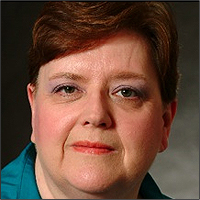Barbara Crowe
// Author, Lecturer & DirectorBARBARA CROWE is an author, lecturer, and Director of Music Therapy for the Herberger College School of Music at Arizona State University in Tempe, Arizona. Her book “Music And Soulmaking: Toward A New Theory Of Music Therapy” (2004) is available from The Scarecrow Press, and “Music Therapy For Children, Adolescents, And Adults With Mental Disorders” (2007) is available from the American Music Therapy, Inc. Barbara Crowe is a Past President of the National Association for Music Therapy, and co-authored the new Standards for Education and Clinical Training for the American Music Therapy Association (AMTA).
Website: https://music.asu.edu
Photo: Barbara Crowe
Interview:
What is spirit? The English word “spirit” derives from the Latin word “spiritus” which means breathe, wind, and life force. As with the first breathe at birth, spirit implies the sense of coming alive. It is the animating principle characterized by vigor, vitality, and élan. Spirit is a tangible, physical presence that implies intelligence and intention. Spirit is a power that knows itself. As with breathe, there is a sense of spirit being drawn inward and then being expressed outward. The inner movement of animation projects outward to an “other”. Spiritus also happens to mean “other”, whether the “other” of humans in a social community, or the “other” of a whole that is “out there”, the allthere- is that is greater than the self alone. This is the Divine principle, the Dynamic Ground that humans yearn for and seek through direct spiritual experiences of the Divine. Since the earliest human history, music has been linked to experiences of spirit, expressions of spirituality, worship of the Divine, creativity, ceremony, ritual, and celebration. It is easy to recognize that music brings us to an experience of spirit but, as Rudolf Steiner said, music is itself spirit not just a mere experience of spirit. Music is a direct expression of spirit reflecting its nature in ways that are understandable and relatable to human beings.
There are many similarities between music and the qualities of spirit. Both satisfy and engage the senses. We know that music is primarily an auditory sense but engaging in music making also activates our sense of touch, vision, and sense of body movement and position. Spirit is also about movement and intentional force and music has many links to the sense of movement. Sound is created by the vibration and the movement of a sound making body. There is no sound without movement. We make music through movement, whether the movement of fingers, vocal chords or columns of air, movement is essential to the production of music. We also experience movement in music through the pulse or beat, the rhythmic patterns propelling us forward, and the stimulation of motor response. Extensive research now shows that a strong auditory pulse in music as directly stimulate a rhythmic motor response. Our perception of melody gives us a sense of movement in space. Melody perception involves a neural mapping of the shape or contour of the melody in our brains. As we follow the melody we move along this spatial map giving us a sense of movement through space. Another characteristic of spirit and music is the link to breathe. The most basic form of music is chanting and singing, the controlled production of breathe. As we sing, we are duplicating the controlled inward and outward breathe of spirit. This is also reflected in playing wind instruments and in the rise and fall of harmonic movement. The characteristics of vitality and vigor seen spirit is also evident in music. Strong rhythms, lively tempos, changes in dynamics, and rich timbres and sonorities create a vivid experience of this sense of aliveness and vitality. Music and spirit are also similar because both express, evoke, and satisfy the full range of human emotional needs. Spirit and music can be joyful, somber, deeply sad, triumphant, or reflect despair. Both spirit and music reflect the full range of the human condition.
Finally, spirit also seeks connection with the Divine principle, and music has been used since the earliest of times to reach out for and directly experience Divine energy. Music has a deep resonance with Divine energy. It can alter our level of consciousness to be more aware of the Divine, and can evoke a truly transpersonal experience through an aesthetic reaction or a deep meditative state. Music “carries us away” and helps us experience the ineffable quality of connection to the Dynamic Ground. Music also helps us create the rituals of worship and gives us a means to bridge the perceived separation between the greater wholeness and ourselves. With the strong correspondence of spirit and music, music becomes a fundamental way to engage in spiritual experiences. Music can alter our state of awareness, opening us to spirituality through strong rhythmic input, and the enveloping sonic environment created by the music event. It gives us a direct experience of the qualities of spirit. Music becomes an integral part of the ritual and ceremony of worship of the Divine principle connecting us to the human community and to the Divine source. Music, in fact, may be the most direct and accessible experience of spirituality known to human kind.
“Music can alter our state of awareness, opening us to spirituality through strong rhythmic input, and the enveloping sonic environment created by the music event. It gives us a direct experience of the qualities of spirit.”
– Barbara Crowe, author of “Music And Soulmaking: Toward A New Theory Of Music Therapy”


